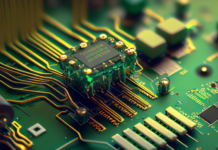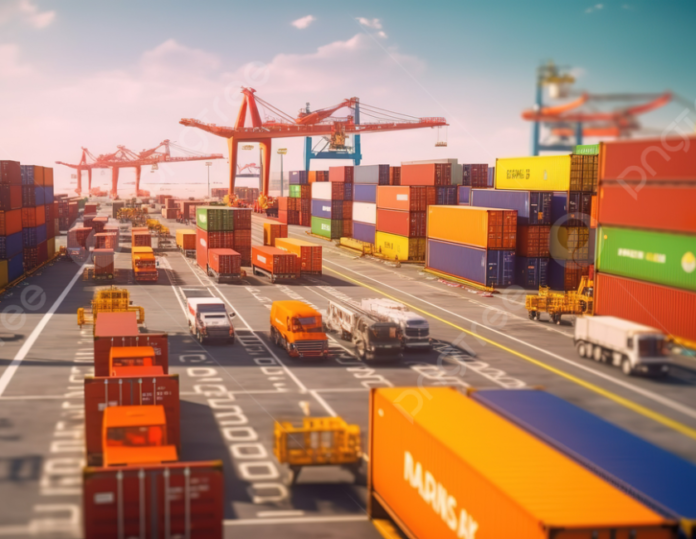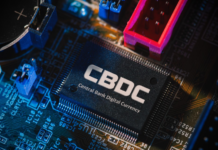In the dynamic realm of global commerce, “Trade Tech” has emerged as a transformative force, redefining how international trade is conducted.
Trade Tech encompasses an array of cutting-edge technologies, including blockchain, artificial intelligence (AI), the Internet of Things (IoT), and big data analytics, all of which aim to enhance efficiency, transparency, and security in trade processes.
As the global market becomes increasingly interconnected, integrating these technologies is crucial for addressing inefficiencies and driving innovation.
Trade Tech streamlines operations, reduces costs, and fosters greater trust and collaboration among trade partners.
This blog will explore Trade Tech’s fundamental aspects, its key components, and the important role it plays in shaping the future of global trade. It will underline its importance for businesses seeking to flourish in a competitive and ever-evolving marketplace.
Understanding Trade Tech
Trade Tech is applying advanced technologies to enhance and streamline international trade processes. It encompasses innovations such as blockchain, artificial intelligence (AI), the Internet of Things (IoT), and big data analytics.
These technologies address inefficiencies, improve transparency, and ensure security in global trade operations. For instance, blockchain ensures secure and tamper-proof documentation, while AI and big data analytics optimize supply chain management and predict market trends.
IoT devices provide real-time monitoring of goods in transit, enhancing delivery reliability. By integrating these technologies, Trade Tech transforms traditional trade practices, reducing costs, speeding up transactions, and fostering greater trust among trading partners.
This convergence of technology and commerce is essential for businesses looking to compete and thrive in the increasingly interconnected global market.
Key Components of Trade Tech
The following are the key components of Trade Tech:
Blockchain Technology
Blockchain offers a decentralized ledger system that enhances transparency and security in trade transactions. It enables the secure recording of trade documentation and ensures that these records are tamper-proof. This technology is particularly beneficial in reducing fraud and streamlining the documentation process in global trade.
Artificial Intelligence (AI)
AI and machine learning algorithms analyze large datasets to predict market trends, optimize supply chain operations, and automate customer service. AI can also help in risk management by recognizing potential disruptions in the supply chain and suggesting proactive measures.
Also Read: Exploring Web 3.0: The Future of the Internet
Internet of Things (IoT)
IoT involves using interconnected devices that communicate with each other to provide real-time data. In trade, IoT devices can monitor the condition and location of goods in transit, ensuring timely delivery and reducing losses due to spoilage or mishandling.
Big Data Analytics
Big data analytics involves processing and analyzing vast amounts of data to extract meaningful insights. In trade, this can help businesses understand market demands, optimize pricing strategies, and improve customer satisfaction by tailoring services to meet specific needs.
Digital Platforms
Online platforms that facilitate trade by connecting buyers and sellers, providing marketplaces for goods and services, and offering tools for managing transactions. These platforms often include automated billing, inventory, and customer relationship management.
Importance of Trade Tech
Trade Tech is crucial for enhancing global trade efficiency, transparency, and security, enabling businesses to optimize operations and remain competitive in an increasingly interrelated market.
Enhancing Efficiency
Trade Tech significantly reduces the time and resources required to complete trade transactions. Automated processes and digital documentation eliminate the need for manual intervention, thus speeding up the entire trade cycle. This increased efficiency can lead to cost savings and faster business turnaround times.
Improving Transparency
One of the most critical benefits of Trade Tech is its increased transparency in international trade. Technologies like blockchain ensure that all parties can access the same information, reducing the risk of discrepancies and disputes. This transparency builds trust among trade partners and facilitates smoother transactions.
Boosting Security
Security is a primary concern in international trade, with risks ranging from cyberattacks to fraud. Trade Tech addresses these issues by providing secure platforms for conducting transactions. Blockchain, for instance, ensures that trade documents are encrypted and unchangeable, significantly reducing the risk of fraud.
Enabling Better Decision-Making
AI and big data analytics in Trade Tech allow businesses to make informed decisions based on real-time data. These technologies can predict market trends, assess risks, and optimize supply chain operations, enabling companies to stay ahead of the competition and acknowledge quickly to changing market conditions.
Facilitating Global Connectivity
Digital platforms and IoT devices enable seamless communication and collaboration between trade partners worldwide. This connectivity makes it easier for businesses to enter new markets, expand their reach, and build international partnerships. It also ensures that all stakeholders are on the same page, which is crucial for the smooth operation of global supply chains.
Sustainability
Trade Tech also plays a significant role in promoting sustainable practices in global trade. IoT devices can monitor the environmental impact of transportation and logistics operations, while big data analytics can help companies optimize their processes to reduce waste and improve energy efficiency. By adopting Trade Tech, businesses can contribute to a more sustainable and environmentally friendly trade ecosystem.
Real-World Applications of Trade Tech
Maersk and IBM’s TradeLens
One prominent example of Trade Tech is the TradeLens platform, developed by Maersk and IBM. TradeLens utilizes blockchain technology to provide a secure and transparent platform for global shipping. By digitizing and automating the documentation process, TradeLens reduces the administrative burden and enhances the visibility of shipments across the supply chain. This has resulted in faster processing times and reduced costs for participating companies.
Alibaba’s Electronic World Trade Platform (eWTP)
Alibaba’s eWTP is another significant initiative that leverages Trade Tech to facilitate global trade. This platform aims to provide small and medium-sized enterprises (SMEs) with the tools and infrastructure to engage in international trade. By offering digital customs clearance, logistics management, and cross-border payment solutions, eWTP lowers barriers to entry and helps SMEs compete in the global market.
Also Read: Embracing the Digital Age
IBM Food Trust
IBM Food Trust is a blockchain-based solution that enhances the transparency and traceability of food supply chains. By jotting down every step of the supply chain on a decentralized ledger, the platform allows consumers and stakeholders to verify the origin and journey of food products. This improves food safety and helps quickly address issues such as contamination and fraud.
Future Prospects of Trade Tech
The future of Trade Tech looks promising, with continuous advancements in technology driving further innovations. Here are a few trends to watch:
Integration of AI and Machine Learning
As AI and machine learning technologies advance, their integration into Trade Tech will become more sophisticated. These technologies will enable even more accurate predictions, advanced automation, and improved decision-making processes, further enhancing efficiency and reducing costs.
Expansion of Blockchain Applications
Blockchain technology is expected to see broader adoption in various aspects of trade beyond documentation and payment. Innovations such as smart contracts, which automatically execute agreements based on predefined conditions, can streamline processes and reduce the need for intermediaries.
Growth of IoT and Connected Devices
The proliferation of IoT devices will continue to enhance real-time monitoring and data collection capabilities. This will improve the accuracy of tracking shipments, optimize inventory management, and ensure better compliance with regulatory requirements.
Rise of Digital Trade Platforms
Digital trade platforms will become more prevalent, providing comprehensive solutions integrating various Trade Tech components. These platforms will offer end-to-end services, from sourcing and procurement to logistics and payment, making it easier for businesses to manage their trade operations.


















